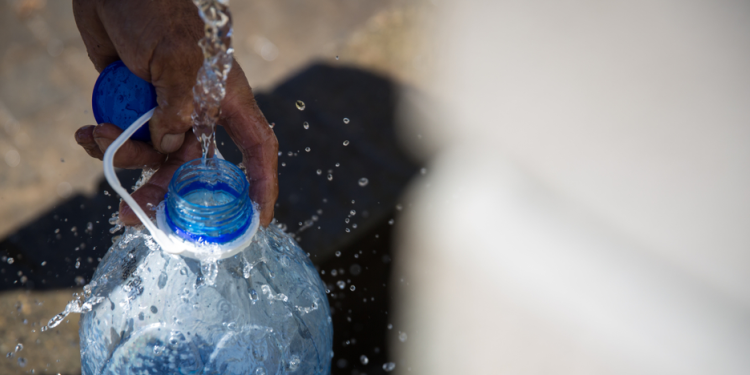
The human population is growing at a fast rate, resource demand is increasing, polluted water is wasted, and climate change aggravates droughts and floods. This year’s World Water Day is about finding nature-based solutions to overcome the current water challenges. Reforestation, restoration of wetlands, and sustainable management of freshwater and wastewater can rebalance the water cycle and improve billions of immediately affected people’s well-being worldwide.
Cape Town: The delay of Day Zero

Cape Town, South Africa's second-largest city, is undergoing the fourth consequent year of drought — the worst in 100 years. For the past three years, the average annual rainfall is 234 millimetres, leading to a record-breaking drought in a city which only a few years ago couldn't possibly imagine that would be soon threatened by Day Zero. However, the unusual weather is not the only reason behind Cape Town's water crisis. Within 20 years the city's population has increased by 80% (from 2.4 million in 1995 to 4.3 in 2018) whereas the dam storage — Cape Town's main source of water — has remained almost the same.
Today, Cape Town asks from all its citizens to drop their daily water use to 50 litres or less to avoid the worst-case scenario of Day Zero, when taps will turn off, and 200 collection sites will be the primary source of water. The government is also looking at exclusive measures to increase the supply of drinking water during this crisis.
First, via desalination; a process which removes salt and impurities from saline water and produces fresh, drinking water. This is a costly method meaning that the water coming from desalination will be more expensive. Secondly, via groundwater extraction, which practically means pumping up water from the ground. This method involves heavy drilling, which may have a severe environmental impact if not thoroughly planned. Also, the government is controlling the water pressure across the city during certain times of the day to forcibly lower the water use in areas which are still over-consuming.
Lesson learned: Water cannot be taken for granted and the issue of water shortage has to be tackled before it becomes a crisis.
São Paulo: Demand for effective and sustainable water management

Between 2014 and 2016, after a severe drought, São Paulo's main water source, Serra da Cantareira, nearly dried out. But how did the western hemisphere's biggest city find itself in this emergency state where nine million people, and especially those in the neglected neighbourhoods, were facing daily water shutoffs lasting up to 12 hours?
Brazil has 12-16% of the world's freshwater — more than any other country. However, a large quantity of this water is accumulated in the Amazon River and the rainforest. Thus, for the country to benefit from this abundance of freshwater, upgraded infrastructure is required. A 2014 federal report showed that almost 40% of water for consumption was being wasted due to pipe failures and illegal usage.
However, during this two-year water crisis in São Paulo, the population seized the opportunity to stand up against the destruction of the Amazon, requesting the pass of the Zero Deforestation bill and recognising the forest as a significant source of life, not only for Brazil but for the entire planet.
São Paulo's reservoirs' levels haven't been on the front page for a while, as the levels have significantly increased since the crisis. However, with climate change, pollution, and deforestation it is not unlikely for the 2014 water shortage to repeat. Thus, industries have decided to take independent, preventive and sustainable measures by recycling water and using private wells.
Lesson learned: Access to clean water is a human right. A country which is investing in sustainable water management and an intelligent plan is investing in a healthy and prosperous future, where the population can thrive.
Melbourne: A well-managed crisis

From 1997 to 2010, Melbourne and much of southeastern Australia suffered the effects of what is now known as the Millennium Drought.
During this 13-year period, Melbourne's water consumption dropped by almost 50% and the city implemented pioneering and effective water-saving measures. For example, daytime lawn watering and car washing were fined, communities were timing their time spent in the shower, and rebates were offered to the households that were using water-efficient washing appliances. Also, education programs at schools and on the media boomed in an effort to keep the public well-informed and alert.
Australia recognised the potential of having different sources of water and invested vastly on technological solutions such as rainwater tanks, a desalination plant, and a pipeline which diverts water from Goulburn River to the rural areas of the north.
Lesson learned: The government and the public identify the problem of the drought as an opportunity to exercise goodwill and cooperation.



















